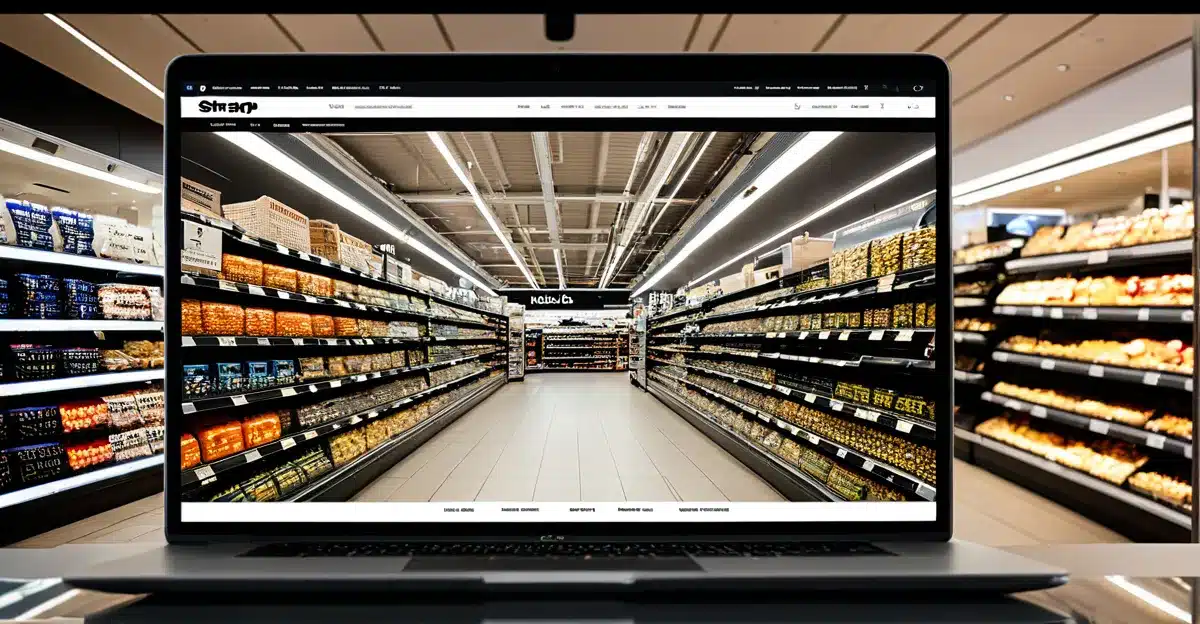Impact of Digital Technologies on UK Retail
The digital revolution has rapidly reshaped the UK retail landscape, driving a profound UK retail transformation. Retailers across the sector have embraced digital tools at an unprecedented pace, incorporating online platforms, mobile apps, and data analytics to refine their offerings. This swift digital adoption has not only enhanced operational efficiency but also revolutionised how consumers shop, making digital channels integral to the retail experience.
Key areas experiencing the most significant changes include consumer behaviour and retailer operations. Shoppers increasingly prefer online browsing and purchasing, pushing retailers to optimise e-commerce sites and integrate multi-channel strategies. Inventory management and personalised marketing now heavily rely on digital analytics, allowing retailers to anticipate demand and tailor promotions more effectively.
Also read : How uk businesses are evolving to meet emerging consumer trends
From an economic perspective, the digital shift has elevated the UK retail sector’s competitiveness. Market data indicates substantial growth in online sales, contributing billions to the economy annually. This digital momentum drives innovation, fosters new business models like click-and-collect, and sustains the sector’s dynamic evolution. As technology continues advancing, the ongoing retail sector innovation will shape the future of UK retail profoundly, reinforcing digital’s core role in economic growth and consumer engagement.
Major Trends Driving Change
The accelerating e-commerce trends in the UK are reshaping retail landscapes rapidly. Online marketplaces are expanding, offering consumers diverse and convenient shopping options. This surge is further amplified by AI in retail, which enhances personalisation through analyzing customer data and behavior, making shopping experiences more relevant and efficient.
This might interest you : How are uk businesses innovating to thrive in the global market?
Another significant shift is the widespread adoption of cashless payments. Contactless methods, such as mobile wallets and card tap-and-go, are increasingly favored for their convenience and hygiene benefits, reflecting broader consumer preferences post-pandemic. This trend also aligns with retailer interests in speeding up checkout processes and reducing cash handling costs.
Furthermore, Omnichannel retail strategies are becoming essential. Retailers now integrate physical stores, online platforms, and mobile apps to create seamless customer experiences. Customers expect to switch effortlessly between channels — browsing online, purchasing in-store, or vice versa — without friction. This approach delivers flexibility, driving customer satisfaction and loyalty.
Together, these trends illustrate a dynamic retail environment, where digital innovation and consumer convenience intertwine, setting new standards for how shopping evolves in the UK market.
Case Studies of Leading UK Retailers
Exploring retail innovation case studies reveals how top UK brands like Tesco, ASOS, and Sainsbury’s have embraced technology adoption in retail to transform customer experiences and operations. Tesco implemented advanced data analytics to personalize marketing and optimize inventory. This strategic focus on digital tools enabled better forecasting and dynamic promotions, increasing customer satisfaction and sales.
ASOS, a true UK digital retail leader, leverages mobile apps and AI-driven recommendations to engage a younger demographic comfortable with online shopping. Their investment in logistics automation and seamless e-commerce interfaces highlights how technology adoption in retail can drive competitive advantage, particularly for digital-first companies.
Sainsbury’s showcases the challenges and successes of legacy brand adaptations. By integrating online grocery shopping and click-and-collect services, Sainsbury’s effectively bridged physical and digital retail, offering convenience and expanding reach without alienating traditional customers.
From these retail innovation case studies, it’s clear that UK retailers succeed through a tailored approach to technology adoption, balancing customer needs with operational efficiency. This adaptability remains crucial for sustaining growth in an evolving digital marketplace.
Opportunities and Challenges in the Digital Revolution
The retail sector opportunities in the digital revolution are vast, especially in the UK. Businesses can tap into market expansion by reaching customers beyond traditional storefronts. E-commerce platforms enable new revenue streams through online sales, personalized marketing, and subscription models. The flexibility of digital retail supports agile responses to consumer trends, allowing firms to stay competitive and innovative.
However, digital retail challenges also demand attention. Cybersecurity risks escalate as retailers handle sensitive customer data across multiple channels. Protecting data privacy is critical to maintaining consumer trust while complying with regulations. Additionally, many businesses face a digital skills gap, limiting effective adoption of technology and hindering transformation efforts. Upskilling employees and recruiting tech-savvy talent become essential strategies to bridge this divide.
Managing supply chains and inventory in a digital-first landscape introduces complexities. Real-time data analytics can optimize stock levels and logistics, but requires integrating advanced systems and addressing operational bottlenecks. Effective business transformation in the UK’s retail sector hinges on balancing these opportunities and challenges, emphasizing resilience and adaptability to thrive in a rapidly evolving market.
Projected Future Developments in UK Retail
The future of retail UK is poised for significant transformation driven by accelerating digital integration. Short-term projections highlight retailers’ increased use of advanced analytics to optimize inventory, personalize marketing, and improve customer insights. This shift allows businesses to respond swiftly to changing consumer behaviour, boosting both efficiency and customer satisfaction.
Emerging retail technologies will play a pivotal role in shaping this landscape. Augmented Reality (AR) and Virtual Reality (VR) are expected to enhance the shopping experience by enabling virtual try-ons and immersive product exploration. Meanwhile, the Internet of Things (IoT) will facilitate smarter supply chains and seamless in-store experiences through connected devices, improving operational agility.
Long-term projections envision a retail environment that merges physical and digital realms, where retail digital projections entail fully integrated omnichannel strategies. Such developments will require retailers to invest in continuous innovation and staff training. Societal and economic implications are profound; employees may need new skills to thrive alongside automation, while consumers will benefit from personalized, convenient shopping journeys. Embracing these technologies could also help retailers address sustainability challenges by enabling data-driven decision-making that reduces waste.
Navigating this evolving landscape will be crucial for UK retailers seeking growth and resilience in an increasingly digital world.



